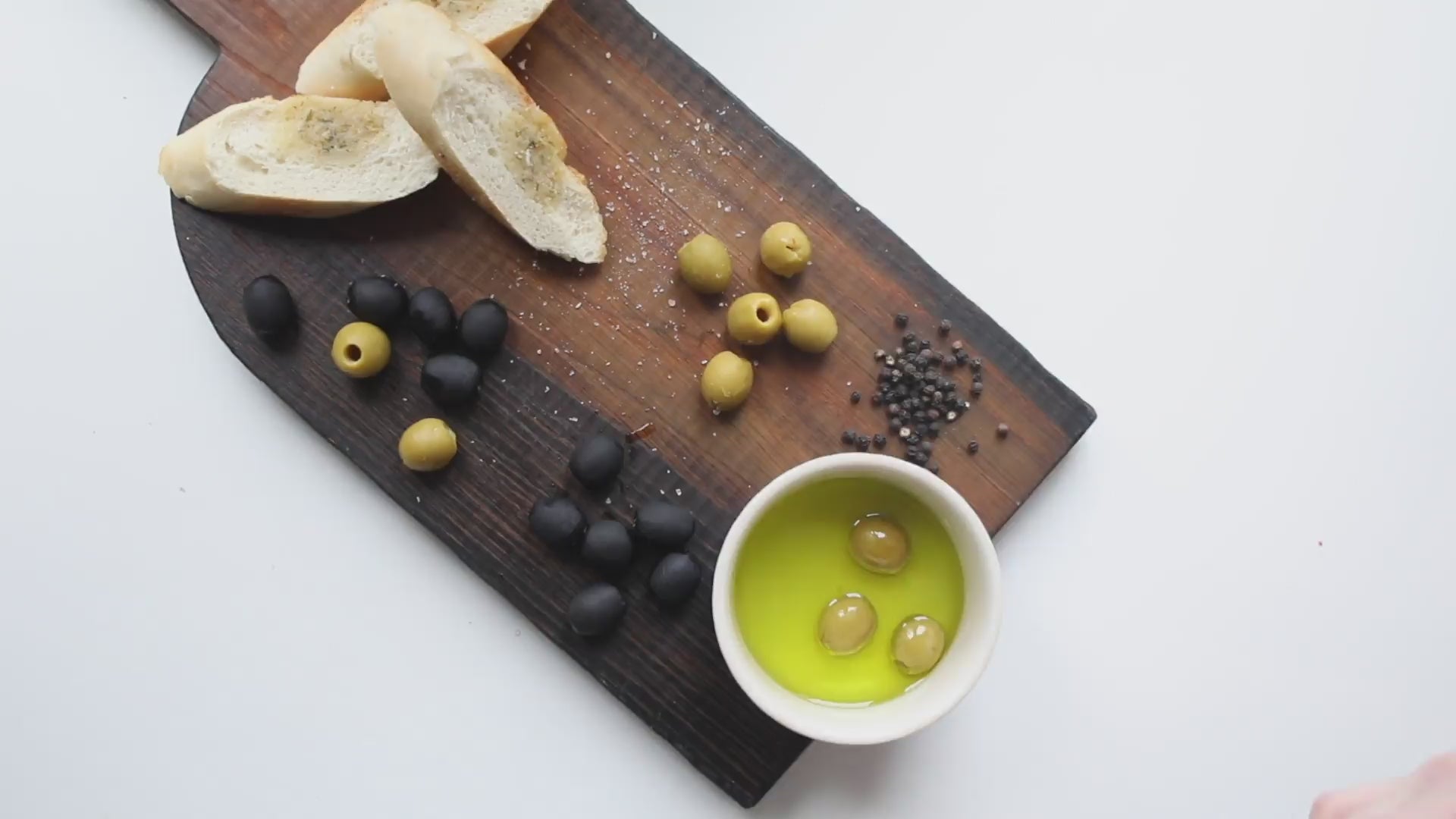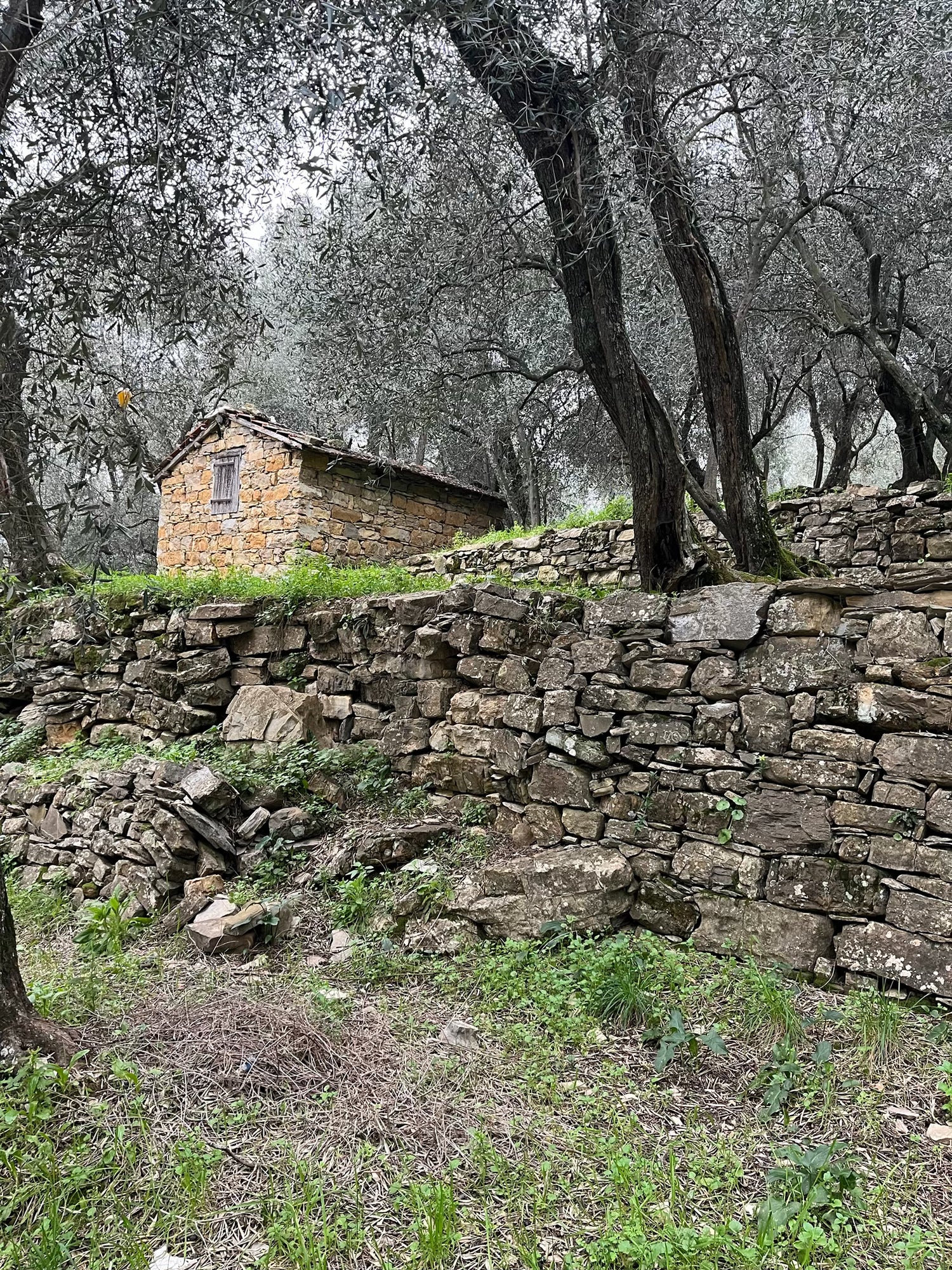
Olive oil is changing.
A lot has been written about the wine business in Europe in the 50’s and 60’s, when there were lots of farmers, and very few winemakers. Local cooperatives loomed large. Most wine arrived on the market as industrial plonk. By our observation, that’s where the olive oil industry is today. It’s overloaded with boring, flavorless mass-produced junk.
But there's movement afoot! Small, independent producers are rising from obscurity to renown, crafting pristine, high-quaility oils that will change the way you cook and the way you eat.
What is Olivette?
Olivette aims to be the conduit between fresh, delicious farmstead extra virgin olive oil, and your own kitchen.
Named for a sort of dance that is done throughout the trees by workers and friends following the completion of the olive harvest-one might think of it as an olive grove conga line.



Dan Beekley, Olive Oil Dork
It's all pretty simple.
30 years in the wine importing business afforded me many things, but none were more satisfying than meeting mom and pop farmers all around Europe. During that time, really great Olive Oil became another passion for me. There's truly nothing like it, and it's a healthy addiction.
Also, I really like to travel and eat good food, and this is damned fun way to do it.
My wife, Elizabeth, shares the driving, tasting, and writing. Two barking fuzz rockets keep us company on the road.

Here's what our travels have taught us.
What does "Extra Virgin" Really Mean?
What does "Extra Virgin" Really Mean?
Here's the technical answer:
Extra virgin olive oil is obtained only from the olive, the fruit of an olive tree, using solely mechanical or other physical means, in conditions, particularly thermal conditions, which do not alter the oil in any way. It has not undergone any treatment other than washing, crushing, malaxing, decanting, and filtering. This excludes oils obtained by the use of solvents or re-esterification methods, and those mixed with oils from other sources.
It has a free acidity, expressed as oleic acid, of no more than 0.5 grams to 1 gram per 100 grams (0.5% to 1%), and other characteristics that correspond to those fixed for this category in the IOOC and other standards.
Note that extra virgin olive oils vary widely in taste, color, and appearance. Their taste and aroma should reflect the fact that they were made from olives (a fruitiness aspect) and have some positive attributes of both bitterness and piquancy (that is, they cannot be totally tasteless).
Most importantly, they are supposed to have no taste defects or flaws. None!
How should I taste Olive Oil?
How should I taste Olive Oil?
There's a technical and professional way, which is the way ALL Extra Virgin Olive Oil earns it's designation. There's also an easier, everyday way.
Let's focus on the easy, shall we?
The Easy Way
- Cut a small slice of bread
- Pour olive oil all over it until it's soaked
- Eat it
You should taste something from the gardening kingdom in any good olive oil--artichokes, green almonds, tomato leaves, apples, cut grass, fresh herbs, leafy greens.
You should NOT taste or smell things like wet concrete, vomit, brined olive aromas, musty, fusty, fermented, oxidized, or rancid stuff. Those are all flaws, and mean that your oil really isn't extra virgin.
Are there Health Benefits to Olive OIl?
Are there Health Benefits to Olive OIl?
Yes, and they are well documented. But here are the summary points, conveniently outlined by the Cleveland Clinic.
We don't aim to offer medical, or even nutritional guidance, so please read up further on your own!
Rich in antioxidants
EVOO contains more than 20 types of polyphenols, a category of plant-based chemical compounds that help protect your heart and reduce inflammation throughout your body. Polyphenols are a type of antioxidant.
Contains healthy fats
Olive oil contains mostly monounsaturated fat, a type of unsaturated fat that’s been linked to benefits, like:
- Protection against harmful inflammation.
- Lower levels of LDL (or “bad”) cholesterol.
- Reduced blood pressure.
Eases inflammation
You might only associate inflammation with cuts and other external injuries, like when something gets swollen, puffy and red after an injury. But inflammation can happen inside your body, too, and it can wreak havoc on your health.
But antioxidants can help.
One of the main antioxidants in virgin and extra virgin olive oil is olecanthal, which has such powerful anti-inflammatory properties that it has even been compared to ibuprofen. Oleic acid has also been shown to reduce inflammation.
May protect against cancer
Oxidative stress plays a role in the development of cancer. But yet again, antioxidants can help.
Multiple studies show that the compounds and antioxidants in EVOO may help lower your cancer risk. And oleocanthal, in particular, is thought to play a role in the cell death of cancer cells.
Good for cardiovascular health
Olive oil has been studied from a cardioprotective standpoint, and it has been shown to reduce lipids and blood pressure, all of which are really helpful for your heart.”
There are a few factors at play, starting with the polyphenols we discussed earlier. A 2017 study showed that the polyphenols in EVOO can help protect against:
- Atherosclerosis (hardening of the arteries).
- Stroke.
- Cardiovascular diseases.
Next up is oleic acid, the main fatty acid in olive oil. It makes up about 73% of the oil itself, and it’s also heart-healthy.
Could help you live longer
This sounds like a pretty lofty claim for little old olive oil, right? But with all the benefits we’ve just named — including keeping chronic diseases at bay — it makes sense that incorporating extra virgin olive oil into a healthy diet may help you live longer.
A 2022 study found that over a 28-year period, high olive oil consumption was associated with an 8% to 34% lower risk of death related to disease. Specifically, participants who consumed a lot of olive oil were 19% less likely to die of cardiovascular disease and 17% less likely to die of cancer than people who didn’t consume much of it.
Can I cook with Olive Oil?
Can I cook with Olive Oil?
Duh!
One of the most widespread myths regarding extra virgin olive oil is that you can’t cook with it, however, this is false. You can and should cook with extra virgin olive oil – it is one of the safest and most stable oils to cook with.
While many believe that the smoke point of an oil indicates its safety for cooking, research has shown this to be false. Instead, the amount of antioxidants and the free fatty acid profile of an oil are more likely to predict its stability when heated.
Extra virgin olive oil is high in stable monounsaturated fats and is also full of antioxidants making it suitable for all domestic cooking including deep frying, roasting, sautéing and baking.